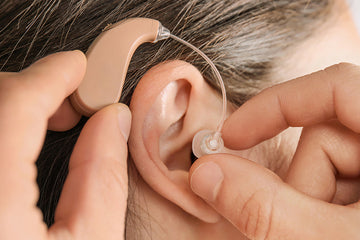Is Hearing Aid Considered a Disability?
With over 11 million people experiencing hearing loss in the UK, many wonder whether using a hearing aid qualifies as a disability. This article explores how hearing loss is viewed legally, how hearing aids fit into the picture, and what rights and support are available for users.
Legal Definition of Disability in the UK
Under the Equality Act 2010, a disability is any physical or mental impairment with a substantial, long-term impact on daily activities. Hearing loss can fall under this definition, even with hearing aids if the impairment remains significant. Assessments consider both the condition and how much assistive devices, like hearing aids, improve daily functioning.
Hearing Aids and Disability Assessments
Hearing aids help with communication but don’t fully restore normal hearing. Their limitations, including performance in noisy settings and maintenance needs, are considered in disability evaluations. If hearing loss still affects daily life despite using aids, the person may be classed as disabled under the law.

Understanding the Equality Act 2010
The Act protects those with hearing impairments from discrimination and ensures reasonable adjustments are made in workplaces, schools, and public services. These might include hearing loops, communication support, or adjustments in how services are delivered.
Workplace Rights for Hearing Aid Users
Employers must take steps to support staff with hearing impairments, such as providing assistive devices or adjusting communication methods. The law also protects employees from discrimination, harassment, and unfair treatment related to their hearing condition.

Support and Resources
The NHS offers free hearing tests, fitting, and support for hearing aids. Charities like Action on Hearing Loss, Hearing Link, and the British Deaf Association also offer advocacy, advice, and community support to help individuals manage hearing loss and understand their rights.
Daily Life with Hearing Loss
Even with hearing aids, everyday situations, like conversations in noisy places can be difficult. This can impact social life and emotional wellbeing. Support groups and counselling can provide helpful strategies and a sense of community.
Accessing Disability Benefits
Hearing aid users may qualify for benefits like Personal Independence Payment (PIP) or Attendance Allowance if their hearing loss affects daily tasks. Organisations such as Citizens Advice offer help with applications to ensure people get the support they’re entitled to.

Advocacy and Community Support
Groups like RNID (formerly Action on Hearing Loss), Hearing Link, and the BDA campaign for better access, raise awareness, and support people with hearing loss. They help users connect, find advice, and influence policy changes.
Conclusion
Wearing a hearing aid doesn’t exclude someone from being considered disabled under UK law. If hearing loss continues to affect daily life, protections and support are available. Understanding your rights and knowing where to find help can make a significant difference in managing hearing loss with confidence and dignity.




